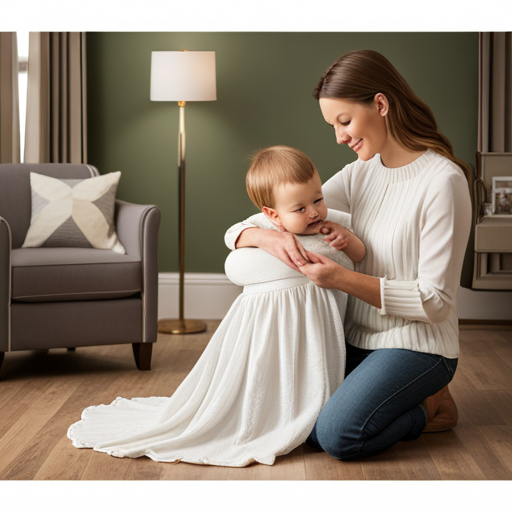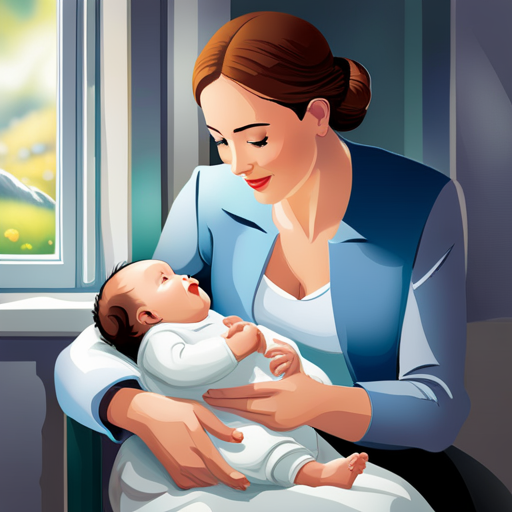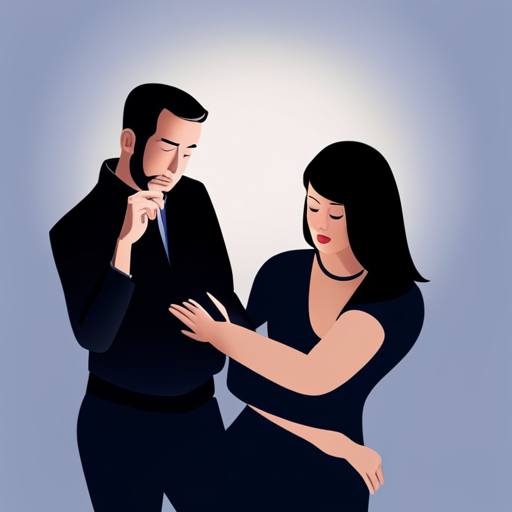"Cherishing Little Steps - A Haven for Baby and Family Journeys"
Baby Hiccups Solutions
Have you ever found yourself frustrated and unsure of how to calm your baby’s hiccups? Well, look no further! Baby Hiccups Solutions is here to provide you with effective remedies that will bring instant relief to your little one.
We understand the intimacy and bond you share with your baby, and we want to help you navigate through these hiccup episodes with ease. Our quick home remedies and gentle techniques have been specially designed to stop those pesky hiccups in their tracks.
From positioning techniques to feeding tips, we have all the solutions you need to prevent and treat hiccups in babies. Say goodbye to sleepless nights and hello to peaceful moments with Baby Hiccups Solutions.
Key Takeaways
- Feeding too quickly or overfeeding can lead to baby hiccups.
- Burping your baby after each feeding can help release trapped air and reduce hiccups.
- Offering a pacifier or gripe water can soothe and reduce hiccups.
- Holding your baby upright during feedings and pacing the feeding can help prevent hiccups.
Understanding Baby Hiccups

To understand baby hiccups, you need to know why they occur and how they can be managed. Babies often get hiccups because their diaphragm, the muscle responsible for breathing, becomes irritated. This irritation can be caused by a variety of factors, such as feeding too quickly, swallowing air while feeding, or even temperature changes. Understanding the causes of baby hiccups is important because it can help you find ways to provide relief.
One common cause of hiccups in babies is overfeeding or feeding too quickly. When a baby drinks too much milk or formula in a short period of time, it can lead to hiccups. Another cause is when a baby swallows air while feeding. This can happen if the baby isn’t positioned properly or if they’re feeding too quickly. Other factors, such as temperature changes or excitement, can also trigger hiccups in babies.
Now that you understand the causes of baby hiccups, let’s talk about some techniques to help relieve them. One effective method is burping your baby. Gently patting or rubbing their back can help release any trapped air and alleviate hiccups. Another technique is to offer your baby a pacifier or to let them suck on your finger. The sucking motion can help relax the diaphragm and stop the hiccups. Additionally, keeping your baby calm and avoiding any sudden movements can also help manage hiccups.
Common Causes of Baby Hiccups

If your baby frequently experiences hiccups, it’s important to understand the common causes behind them. Hiccups are a normal part of a baby’s development and are usually harmless. Here are some common causes and prevention tips to help you manage your baby’s hiccups:
-
Causes of Baby Hiccups:
-
Immature digestive system: Your baby’s digestive system is still developing, and hiccups can occur as a result of the diaphragm contracting involuntarily.
-
Feeding too quickly: If your baby drinks milk or formula too quickly, they may swallow air, leading to hiccups.
-
Prevention and Natural Remedies:
-
Burp your baby: Burping your baby during and after feeds can help release any trapped air and reduce the likelihood of hiccups.
-
Slow down feedings: Encourage your baby to eat at a slower pace to minimize the intake of air.
-
Pacifier use: Offering a pacifier can help soothe your baby and regulate their breathing, potentially reducing hiccups.
-
Gripe water: Some parents find that giving their baby gripe water, a natural remedy made from herbs, can help relieve hiccups.
Signs and Symptoms of Baby Hiccups

Experiencing hiccups is a common occurrence for babies, and recognizing the signs and symptoms can help you understand when your little one is experiencing them. While hiccups may seem harmless, they can sometimes indicate underlying issues or discomfort. So, what should you look out for?
The most obvious sign of baby hiccups is the repetitive, rhythmic jerking motion that occurs in their diaphragm. You may also notice a slight pause in your baby’s breathing as they hiccup. Some babies may become fussy or irritable during hiccups, while others may not be bothered at all. It’s important to remember that hiccups are usually harmless and will go away on their own.
To prevent baby hiccups, it’s essential to understand the causes. Hiccups can be triggered by a variety of factors, including feeding too quickly, swallowing air while eating or drinking, or even overstimulation. To minimize the risk of hiccups, try feeding your baby in an upright position and ensuring they’re calm and relaxed before and during meals.
Recognizing the signs and symptoms of baby hiccups can help you understand when your little one is experiencing discomfort. By understanding the causes and taking preventive measures, you can help reduce the frequency and duration of hiccups, ensuring a more comfortable experience for your baby.
Quick Home Remedies for Baby Hiccups

If your baby is experiencing hiccups, there are several quick home remedies that can help provide relief. Hiccups in babies are often caused by a variety of factors, including feeding too quickly, swallowing air, or even a sudden change in temperature. The good news is that there are natural remedies that you can try at home to help soothe your little one’s hiccups.
-
Burping: Gently pat your baby’s back to help them release any trapped air in their stomach. This can often alleviate hiccups caused by swallowing air during feeding.
-
Offering a pacifier: The sucking motion can help regulate your baby’s breathing and may stop hiccups in their tracks.
-
Changing feeding positions: If your baby tends to get hiccups after feeding, try experimenting with different feeding positions. For example, if you usually feed them in a reclined position, try holding them more upright.
-
Offering small sips of water: If your baby is over six months old and has started solid foods, you can offer them a small amount of water to help alleviate hiccups.
These quick home remedies are safe and gentle ways to help relieve your baby’s hiccups. Remember, if your baby’s hiccups persist or are accompanied by other concerning symptoms, it’s always best to consult with your pediatrician.
Gentle Techniques to Stop Baby Hiccups

To stop your baby’s hiccups, try using gentle techniques.
Baby hiccups can be bothersome and uncomfortable for your little one, but there are several soothing techniques you can use to help alleviate them.
One effective method is to give your baby a pacifier or encourage them to suck on their thumb. This can help to relax the diaphragm and stop the hiccups.
Another technique is to gently rub or pat your baby’s back. This can help to stimulate the nerves in their diaphragm and interrupt the hiccup reflex.
Additionally, you can try gently bouncing or rocking your baby, as this motion can help to calm their body and stop the hiccups.
If your baby is old enough to eat solid foods, offering them a small amount of water can also be helpful in stopping hiccups. Remember to always supervise your baby during feeding to prevent choking.
Positioning Techniques for Hiccup Relief

Try different positions to help relieve your baby’s hiccups. Sometimes, a simple change in position can work wonders in soothing those pesky hiccups. Here are some positioning techniques that you can try:
-
Holding your baby upright: Gently hold your baby against your chest, with their head resting on your shoulder. This position can help relieve hiccups by allowing gravity to assist in moving air out of their stomach.
-
Laying your baby on their stomach: Carefully place your baby on their tummy on a soft surface, such as a blanket or your lap. This position can help relieve hiccups by putting gentle pressure on their diaphragm, encouraging it to relax.
Remember, every baby is different, so it’s important to experiment with different positions to find what works best for your little one. While trying these positioning techniques, you can also incorporate other soothing methods like gentle patting, singing, or offering a pacifier. The key is to create a calm and comfortable environment for your baby.
Feeding Tips to Prevent Hiccups in Babies

Experimenting with the timing and techniques of feeding can help prevent hiccups in your baby.
When it comes to bottle feeding, there are a few tips you can try to minimize the chances of hiccups occurring. First, make sure to hold your baby in an upright position during feedings. This can help reduce the amount of air your baby swallows, which can lead to hiccups.
Additionally, try to pace the feeding and allow for breaks. Babies can sometimes gulp down milk too quickly, causing hiccups. By taking breaks and allowing your baby to burp, you can help release any trapped air and prevent hiccups from happening.
Another technique to try is adjusting the nipple flow. If the milk flows too fast, your baby may swallow more air. Choosing a slower flow nipple can help regulate the milk flow and reduce the likelihood of hiccups.
Remember to burp your baby after each feeding, as this can help release any excess air in their stomach. Gently patting or rubbing their back can help encourage the burping process.
When to Seek Medical Help for Baby Hiccups

If your baby’s hiccups persist or are accompanied by other concerning symptoms, it’s important to seek medical help. While hiccups are usually harmless and go away on their own, there are instances when they may indicate an underlying issue that requires medical attention. Here are some signs that may warrant a visit to the doctor:
- Hiccups that last for more than an hour: While hiccups typically resolve within a few minutes, if your baby’s hiccups persist for an extended period, it could be a cause for concern.
- Difficulty breathing or swallowing: If your baby experiences difficulty breathing or swallowing during hiccups, it may be a sign of an underlying respiratory or gastrointestinal problem that requires medical evaluation.
When it comes to preventing hiccups naturally, there are a few alternative remedies you can try before seeking medical help. These include:
- Burping your baby after feedings: Excess air in the stomach can trigger hiccups, so make sure to burp your baby regularly during and after feedings.
- Offering smaller, more frequent feedings: Overfeeding can lead to hiccups, so try offering smaller amounts of milk or formula more frequently throughout the day.
Preventing Future Hiccups in Babies

To prevent future hiccups in your baby, incorporate regular feeding breaks. By giving your baby breaks during feedings, you allow their little digestive system to process the milk more efficiently, reducing the chances of hiccups. Additionally, ensuring that your baby is in an upright position while feeding can help prevent hiccups. This position allows gravity to aid in the digestion process and prevents the milk from flowing back up, which can sometimes trigger hiccups.
In addition to feeding techniques, there are other natural ways to prevent hiccups in babies. Burping your baby after each feeding can help release any trapped air in their stomach, reducing the likelihood of hiccups. Gently pat or rub your baby’s back to encourage burping.
Soothing techniques can also be effective in preventing hiccups. For example, offering a pacifier can help soothe your baby and keep their swallowing reflex engaged, preventing hiccups. You can also try gently rocking or swaying your baby to provide comfort and relaxation, reducing the chances of hiccups occurring.
Frequently Asked Questions
Can Baby Hiccups Cause Any Long-Term Health Issues?
Baby hiccups are common and usually harmless. They don’t typically cause any long-term health issues. It’s important to know how to soothe them and understand the common causes.
Are There Any Specific Foods That Can Trigger Baby Hiccups?
Certain foods during pregnancy can trigger baby hiccups, but it’s important to note that each baby is different. To find out what works for you, try remedies for adult hiccups like sipping water or holding your breath.
How Long Do Baby Hiccups Usually Last?
Baby hiccups usually last for a few minutes to an hour, but it can feel longer for worried parents. Remember, different remedies work for different babies, so it’s a trial-and-error process.
Can Hiccups Be a Sign of an Underlying Medical Condition in Babies?
"Are your baby’s hiccups causing concern? While hiccups are usually harmless, they can rarely indicate an underlying medical condition. Consult a healthcare professional for advice and consider trying home remedies."
Are There Any Medications That Can Help in Stopping Baby Hiccups?
You don’t need medications to stop baby hiccups. There are plenty of natural remedies and techniques you can try. From gentle burping to offering a pacifier, these methods can help prevent those adorable little hiccups.
Conclusion
So there you have it, a bunch of helpful tips and tricks to stop those pesky baby hiccups. Who knew such a tiny thing could cause so much annoyance?
But fear not, with these gentle techniques and feeding tips, you’ll be able to bring some much-needed relief to your little one.
Remember, if hiccups persist or become a regular occurrence, don’t hesitate to seek medical help.
Now go forth and conquer those hiccups like the hiccup-hunting hero you are!


